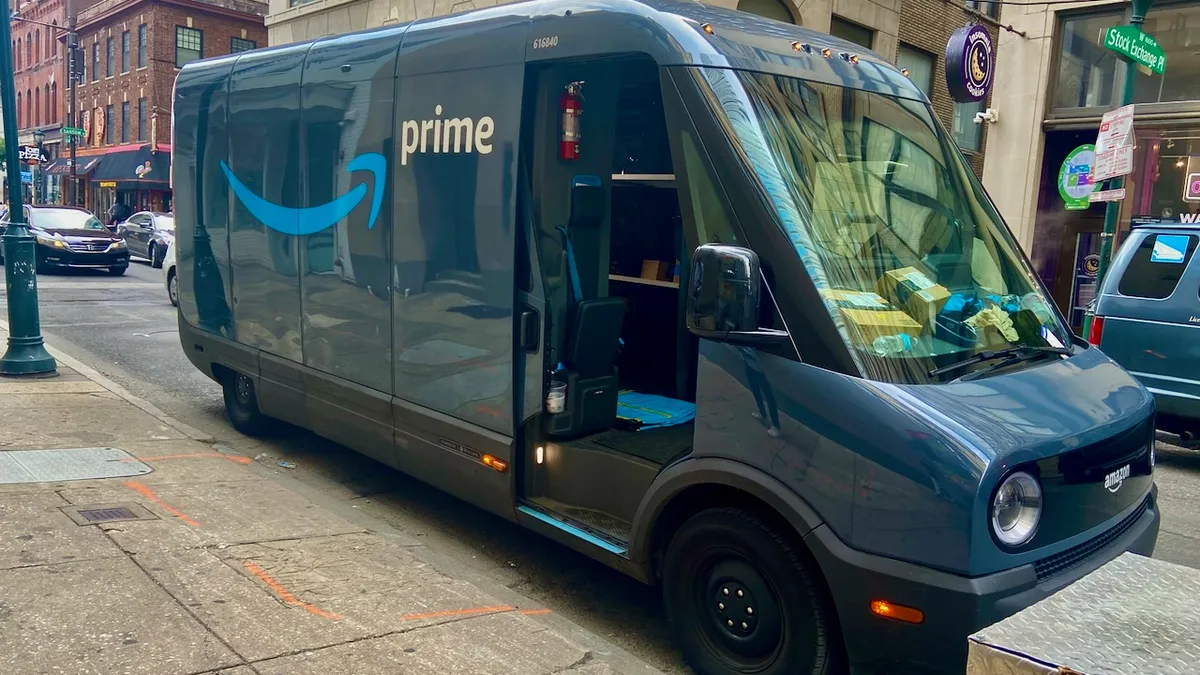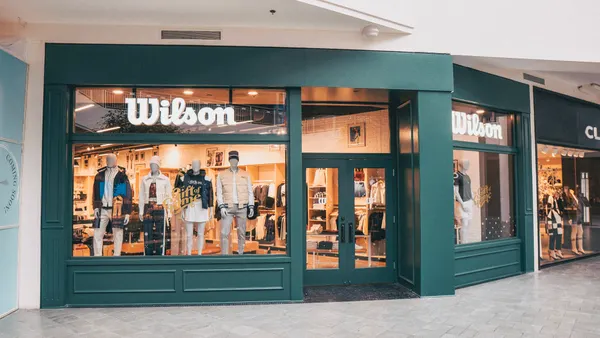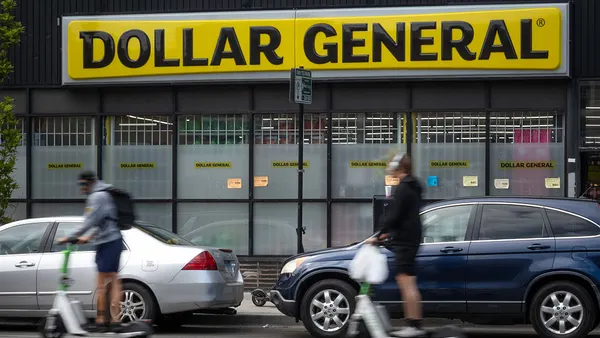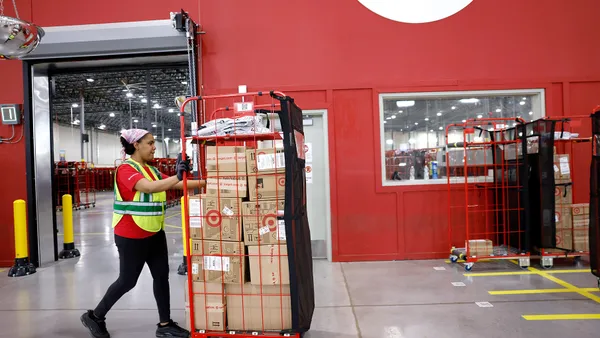Dive Brief:
-
Since mid-2022, Amazon has allegedly violated a Washington, D.C., consumer protection law by withholding benefits from Prime members in two zip codes, according to a civil lawsuit, citing “undisclosed internal policies,” that was filed Wednesday by the district’s attorney general.
-
Noting that Prime members pay $139 per year or $14.99 per month, the lawsuit states that Amazon “deliberately — and secretly — stopped providing its fastest delivery service to the nearly 50,000 Prime members who live in historically underserved communities east of the Anacostia River,” per court filings.
-
In an emailed statement, Amazon spokesperson Kelly Nantel called the claims “categorically false,” adding that the company “made the deliberate choice to adjust our operations, including delivery routes and times, for the sole reason of protecting the safety of drivers. And we’re always transparent with customers during the shopping journey and checkout process about when, exactly, they can expect their orders to arrive. What we’d like to do, and have offered, is to work together with the Attorney General and their office in an effort to reduce crime and improve safety in these areas.”
Dive Insight:
Wednesday’s lawsuit alleges that Amazon systematically reduced its services to the two zip codes, in violation of the city’s Consumer Protection Procedures Act.
That law “prohibits a broad range of deceptive and unfair business practices, including misleading consumers, making misrepresentations, and failing to disclose important information about products or services.”
Before Amazon’s alleged change in policy, for example, more than 72% of Prime deliveries to those areas occurred within two days of checkout, while afterward just a quarter were, according to a Wednesday press release from the AG’s office. Meanwhile, delivery speeds in other areas of the city got faster, with nearly three-quarters of Prime members in those places enjoying two-day delivery.
Amazon violated the consumer-protection statute by leading residents in these zip codes to believe that would be privy to Prime’s two-day shipping, misleading existing members and inducing others there to sign up for Prime, according to the attorney general’s press release. Moreover, the e-retailer responded to customer complaints about this by saying that slower times were rare and weren’t purposeful.
The e-commerce giant in its marketing materials caveats that free same-day delivery is only available in select areas, but doesn’t say the same about one- and two-day shipping, except to point out that free two-day delivery “is available for ‘[n]early all addresses in contiguous U.S.,’” per the court filing.
Amazon said in a follow-up email that it is "constantly reviewing data and conditions relating to safety, the weather, volume, speed, and more all in the best interest of our customers, employees, and those who deliver on our behalf, and making changes accordingly as these variables change."
Regarding Wednesday's lawsuit, the company emphasized safety issues.
“We want to be able to deliver as fast as we possibly can to every zip code across the country, however, at the same time we must put the safety of delivery drivers first,” Nantel said. “In the zip codes in question, there have been specific and targeted acts against drivers delivering Amazon packages.”
Safety measures that can slow down delivery speeds include reserving deliveries for daytime hours or having third-party services take over the job, the company said by phone.
In fact, the complaint points to the second solution, alleging that to serve these affected areas, Amazon partners “exclusively with third-party delivery services like UPS and the US Postal Service, which it knows are often slower than Amazon’s.”
“Amazon knew its ‘exclusion’ would result in significantly slower deliveries for residents living in these two ZIP codes yet it never informed existing or prospective Prime members living there of that exclusion,” per the AG’s release.
While the lawsuit claims that Amazon fails to disclose limitations on same-day shipping until after someone from the affected zip codes signs up for Prime, Amazon said that customers are provided with estimated delivery times as they shop.
Nearly half the population in the two affected zip codes are Prime members, per the AG’s release, and those areas represent “two-thirds of the District east of the Anacostia River, historically the most underserved part of the District,” per the court filing.
“Amazon is charging tens of thousands of hard-working Ward 7 and 8 residents for an expedited delivery service it promises but does not provide,” Attorney General Brian Schwalb said in a statement. “While Amazon has every right to make operational changes, it cannot covertly decide that a dollar in one ZIP code is worth less than a dollar in another. We’re suing to stop this deceptive conduct and make sure District residents get what they’re paying for.”
Clarification: This story has been updated to clarify that Amazon provides customers with estimated delivery times as they shop.














